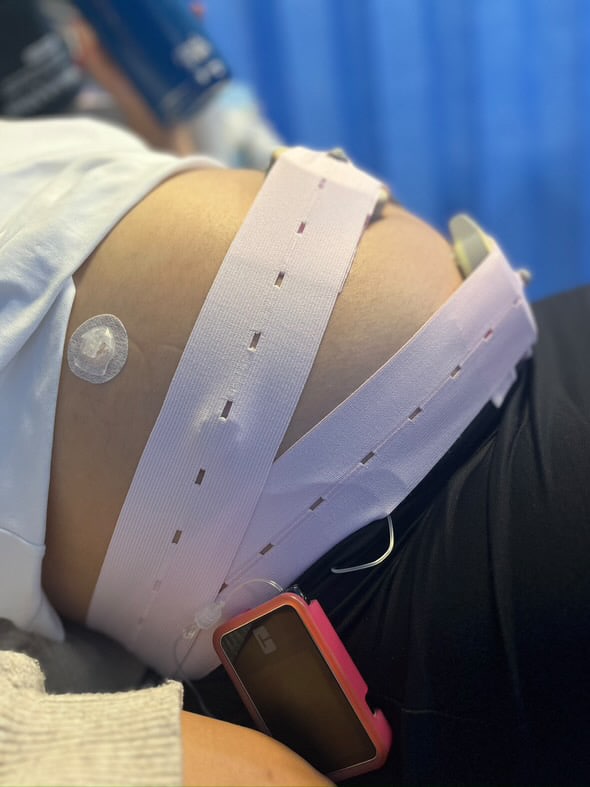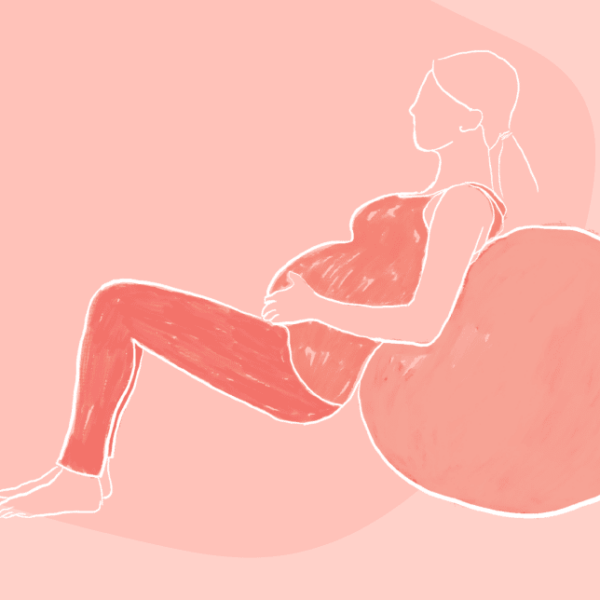Pregnancy Baby Movements In Pregnancy
Baby Movements In Pregnancy

Being aware of your baby’s movements, including the pattern of their movements, is vital to understanding their wellbeing. If you notice your baby’s movements have changed in frequency or strength, contact your care provider immediately.
When should I feel my baby move?
You’ll start to feel your baby move anywhere from 14-20 weeks and you can expect to feel them move every single day (you may feel your baby later on if you have an anterior placenta). By 24-28 weeks most babies have established a predictable pattern of kicks and flips, rolls and stretches and a distinct sleep/wake cycle. It’s really beneficial to tune into your baby’s movements and take note of their frequency and strength. You can expect your care provider to ask about them at your appointments, too. There’s no set number of normal movements but when the patterns in movement change, it may be a sign that something’s not quite right. A well-baby will move regularly whereas a compromised baby may slow or change their movements to conserve energy.’
What do baby movements feel like?
Your baby’s first movement is called quickening and it feels like a subtle flutter. As your pregnancy progresses, the movements will become more distinct, and you will more easily feel their kicks, jabbing and elbowing.
How often should my baby move?
If you notice a change in your baby’s movements, regardless of how many weeks you are, don’t hesitate to contact your care provider. You are not an inconvenience; regardless of the time of day or night, your care provider wants to hear from you and in most cases, they will want to see you face to face for a thorough review. They will encourage you to present to the birthing unit where a few routine investigations may be performed, including monitoring your baby’s heartbeat, measurement of your baby’s growth, ultrasound to check the level of amniotic fluid surrounding your baby and blood test to look for signs of infection. If you present to the hospital twice with reduced movements this is considered a red flag and your care provider may start chatting about a new plan to keep you both safe.
Being aware of your baby’s movements is a beautiful way to bond but it’s also how your baby communicates with you. Tune in and connect; your baby’s movements matter.
Is there anything that can affect being able to feel my baby move?
The position of your placenta can definitely affect when you’ll feel your baby move; if you have an anterior placenta (located at the front of your uterus) you may not feel your baby move for some time yet.
Common questions about baby movements:
Is it true that my baby will move less towards the end of my pregnancy?
No by 24-28 weeks your baby will establish a predictable pattern of kicks and rolls, stretches and flips and a sleep/wake cycle. There’s no set number of times your baby should be moving but getting to know their pattern of movement is important. This pattern will continue throughout the third trimester and well into labour. A change in this pattern may be a sign that something’s not right.
Is it true I can make my baby move?
No. Eating and drinking cold foods to stimulate your baby is not an accurate indication of your baby’s wellbeing.
What happens if my baby’s movements have slowed down?
Being aware of your baby’s movements, including the pattern of their movements, is vital to understanding their wellbeing. If you notice your baby’s movements have changed in frequency or strength, contact your care provider immediately.
For more information, visit the Stillbirth Centre of Research Excellence
Categories
Related Products
-
The Birth Class
105 reviews$249.00The empowering online childbirth education program that will help you confidently prepare for birth.
Get your copy of our Perineal Massage Guide in your inbox
Keep Reading
We think you might enjoy these articles

Pre-existing Diabetes and Pregnancy: What You Need to Know

Harnessing the Power of Acupressure: A Natural Approach to Preparing for Birth

Thoughtful Christmas Gifts for your Pregnant Friend.

What is Pre-eclampsia?

Non-invasive Prenatal Testing (NIPT)
@AustralianBirthStories
Follow along with us
@AustralianBirthStories
Follow along with us
@AustralianBirthStories
Follow along with us
@AustralianBirthStories
Follow along with us
@AustralianBirthStories
Follow along with us
@AustralianBirthStories
Follow along with us
@AustralianBirthStories
Follow along with us
@AustralianBirthStories
Follow along with us
@AustralianBirthStories
Follow along with us
@AustralianBirthStories
Follow along with us
@AustralianBirthStories
Follow along with us
@AustralianBirthStories
Follow along with us





